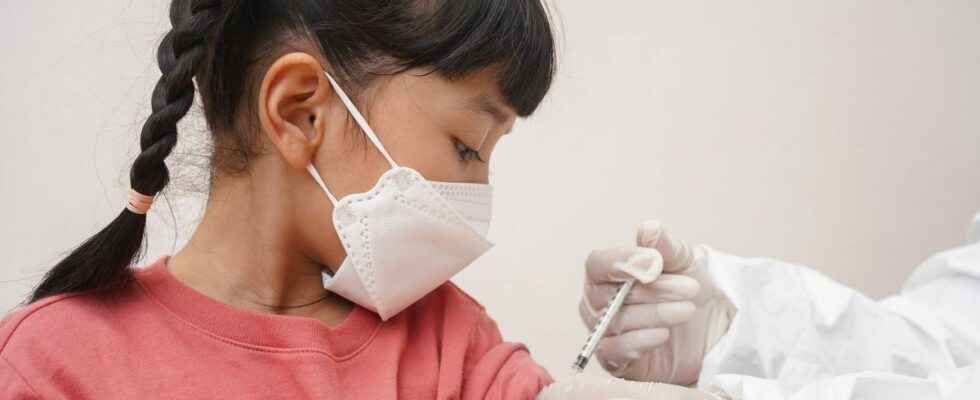Published on
Updated
Reading 2 mins.
The Covid-19 crisis and lack of access to care and information have caused the largest continuous decline in childhood vaccination against other diseases in nearly 30 years, according to the UN.
“This is the largest continuing decline in vaccination in a generation”said Ephrem Tekle Lemango, UNICEF’s deputy director for health and immunization via videoconference from New York.
A decline after a decade of improvements
According to a joint WHO/UNICEF report published on Thursday, the proportion of children having received the three doses of the vaccine against diphtheria, tetanus and poliomyelitis (DTP), a benchmark in terms of global vaccination coverage, fell by 86% in 2019. to 81% in 2021.
25 million children missed one or more doses of this DTP vaccine in 2021 – 2 million more than in 2020, and 6 million more than in 2019.
Nearly three-quarters of these children have not even received a dose, the majority of them being in countries of the South with middle or low incomes such as India, Nigeria, Indonesia, Ethiopia or the Philippines.
This decline recorded in 2020 and 2021 follows a decade of improvements.
In particular because of: “significant impact” of the pandemic, the economic consequences of which “have forced parents and families to choose between feeding themselves and vaccinating their children”according to the deputy director, while the confinements also contributed to this decrease.
A lack of access to services
Misinformation about vaccines, on the rise during the pandemic, especially on social networks, does not play a major role, however.
“We are concerned about misinformation and misinformation, but it is important to recognize that this is not the main factor (explaining) why children are not vaccinated”said WHO Director for Immunization, Vaccines and Biologicals, Dr. Kate O’Brien.
It’s rather “access to services” of care and their “quality” which is in question, according to Dr. O’Brien, recalling however the importance of monitoring the information circulating within local communities, to quickly detect the circulation of false news.
If necessary, it is then up to “trusted leaders” of each community that it is the responsibility of confronting them to “to ensure that people have correct information” regarding vaccination.
While the pandemic has caused the postponement of around forty vaccination campaigns in an equivalent number of countries, Dr. O’Brien listed the measures countries could put in place to make up for the accumulated delay.
Implementation of vaccination campaigns
In particular, it calls for the implementation of vaccination campaigns “to catch up with children who have been missed in the past”requiring the support of a “political leadership”but also adequate funding.
“As we try to catch up, we will need to identify these children (…) and reach them with targeted campaigns”completes Mr. Lemango.
“It means additional funding, and new calls for (obtaining) vaccines” and especially “mobilize these communities to make these campaigns a success”.
